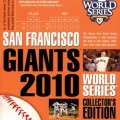As Major League Baseball saunters into the final weeks of the season, with the play-offs and World Series looming on the near horizon, the prolific American documentary filmmaker Ken Burns, along with his longtime producer Lynn Novick, has completed a compelling two-part mini-series, The Tenth Inning, that serves not only as an insightful sequel to his 1994 nine-part Baseball, but also provides a compelling and, I would argue, definitive backdrop to the national pastime during the past decade-and-half.
While I have long been a cautious fan of Burns’ work since he burst onto the national scene in 1990 with his iconic PBS series The Civil War, I have not been an uncritical worshipper, as have been many in the mainstream American media.
While Burns has forged a remarkable body of documentaries over the last 20 years, much of which has forced this country to re-explore racism in the shaping of its history, his soft-liberalism and unwillingness to take hard stands on a variety issues has led to what historians call a “reconciliationist” view of slavery in particular, and race-relations in general, as opposed to a more “emancipationist” perspective that acknowledges the limits of the “melting pot” model in understanding American history.
Moreover, his cinematic aesthetic has bordered on the tedious. I recently purchased his homage to the National Parks as a way of creating some quality together-time for my family, and while I personally enjoyed the series, it managed to put three generations of viewers in my household to sleep with the very first installment. I had to watch most of it on my own.
Not so with The Tenth Inning. In many ways it’s Burns’ best film, with a sharp critical edge, faster cutting and a dynamic soundtrack. Indeed, The Tenth Inning is bold from the get-go. It opens with Jose Feliciano’s brilliant rendition of the “Star Spangled Banner” cut against footage of young kids in the Dominican Republic playing baseball with sticks and battered balls in the shanty towns of the impoverished Caribbean nation. It is a subtle way in which the filmmakers acknowledge the globalization of the sport in a context of American neocolonialism.
Even more surprisingly, the first talking head one encounters is that of Keith Olbermann, the über-liberal host of MSNBC’s Countdown, waxing poetic about the game. It’s a bold move by Burns and Novick, and it pays off in droves. “What adheres me to baseball, and always has,” Olbermann astutely observes, “is this sense that I am watching essentially the same game that somebody saw in 1860. … It’s the only sport that goes forward and backwards. … You come in at the start of the game and the start of the season, or the start of your own fandom, you feel as if you were joining a river midstream. And all that has gone before, you can enjoy as if you were there.”
Burns and Novick provide political balance with the somnambulant George Will, but even the conservative, bow-tied columnist is surprisingly sharp-edged in his commentary throughout.
Other new voices in The Tenth Inning are equally engaging. Pedro Martinez, the Dominican right-hander, is absolutely captivating, whether pontificating about pitching inside or discussing the Red Sox World Series victories of 2004 and 2007. The addition of former Yankee (and now Dodger) manager Joe Torre is also a thoughtful addition, particularly as he reminisces about the 2001 World Series in the aftermath of 9/11.
For Bay Area sports fans, the most exciting new addition to the lineup of talking heads may well be Marcos Breton, a widely respected columnist for the Sacramento Bee and the author of two important baseball tombs, Away Games, a groundbreaking examination of the experiences of Latin ballplayers, as well as the autobiography of controversial slugger Sammy Sosa.
“Growing up as a Mexican-American kid in Northern California,” says Breton, who grew up playing Little league ball in San Jose and is a Giants fan, “there weren’t a lot of positive images.” He nearly breaks into tears as he recalls his youthful hero Roberto Clemente speaking in Spanish after the 1971 World Series as a way of honoring his parents. Breton’s perceptive observations help to frame many of the significant issues addressed in the film.
The last 16 years in professional baseball have provided not only some of its most exciting moments in its history (Mark McGwire and Sammy Sosa’s home run chase in 1998; Barry Bonds’ pursuit of Hank Aaron’s all-time record; the Red Sox amazing World Series wins), but also some of its greatest shames, including several work stoppages that laid bare the greed that taints the business side of the game.
If I had one political quibble with The Tenth Inning, it’s that Burns and Novick don’t go quite hard enough at either the owners or the players’ union in their analysis of this dynamic, though they clearly spread the blame.
But the filmmakers are at their best when addressing the most significant issue that has tarnished baseball in the last two decades—the use of performance enhancing drugs (most specifically anabolic steroids) by players at all levels of the game.
At the center of the steroids controversy—and at the center of Burns and Novick’s film—looms Barry Bonds, the great San Francisco Giants’ slugger who forced his way into baseball’s record books not only with great skills and determination but also with performance enhancing drugs.
It is a tragedy of Shakespearean proportions, and The Tenth Inning tells it with proper nuance and dramatic arc. “He is a very complicated character,” observes Breton. “He is brilliant, he is blessed, and yet he gave the impression that his life was a burden and the gifts that he had wore him down.”
I’ll confess that Bonds has never been my favorite player. I don’t have any of his baseball cards hidden away in my desk drawer. I viewed him as a selfish superstar who was more interested
{pagebreak}
in his own achievements than those of his team. The most telling statistic in Bonds’ career is not his 763 career home runs, but the fact that he never played on a single championship team in his life—not in the minors, not in college or high school, not even in Little league.
That said, Bonds was essentially lynched in the final days of his career by the San Francisco Chronicle, most notably by reporters Lance Williams and Mark Fainaru-Wada, whose book Game of Shadows issued a one-sided and one-dimensional portrait of Bonds that traded far too much on innuendo and unnamed sources.
To their credit, Burns and Novick present the story in broader strokes, framing Bonds’ difficult psyche in the context of his father Bobby Bonds’ mistreatment at the hands of baseball execs and the insidious institutional racism that still plagues Major League Baseball. As a result, The Tenth Inning provides not only the best summation of Bonds’ remarkable and troubled career to date, but also with a complex understanding of how the Steroids Era should best be viewed in the sweep of baseball history.
As a lifelong Giants fan who has cried black and orange for the past half-century, hope springs eternal this autumn as they find themselves in a battle for the National League West or a possible wild-card berth in the playoffs. I’ve been burned in that pursuit before. Whatever the outcome, The Tenth Inning provides a delightful backdrop—and context—to that ever-elusive dream.
The Tenth Inning
Tuesday-Wednesday, Sept. 28-29, 8-10pm on PBS



